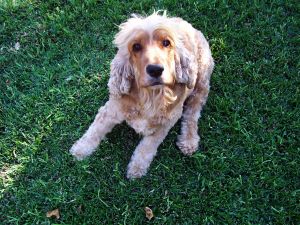 The tiny Chihuahua is perhaps best known as the Taco Bell dog although this does the breed a bit of a disservice. Unfortunately, far too many people have a tendency to treat this small dog as though it were a baby and this can lead to serious temperament issues. Although they are small, the Chihuahua will rule the household as easily if not more easily than any big dog.
The tiny Chihuahua is perhaps best known as the Taco Bell dog although this does the breed a bit of a disservice. Unfortunately, far too many people have a tendency to treat this small dog as though it were a baby and this can lead to serious temperament issues. Although they are small, the Chihuahua will rule the household as easily if not more easily than any big dog.
Traits
This is the smallest known dog breed however his attitude is anything but small. They can be very domineering and, without proper pack leadership, they can become aggressive towards people and other animals. Training and socialization are very important. Although their exercise needs can be met while playing games and running around the home, they need the socialization and enforced behavior that come with going for regular walks. The coat may be short or long and wavy.
Training
As with many small breeds, Chihuahuas are not always easily trained. They are born manipulators and are well aware that you think they are too cute for words and prone to letting them get their way. Discipline must be firm but positive and training from the time they arrive in the home is essential. You may need to adopt an indoor toilet training method such as litter training or using training pads, particularly if you are away for extended periods during the day as their bladders are quite small and they need to potty more frequently than a larger dog.
Children
Chihuahuas are not generally recommended for homes with young children for a variety of reasons. Their size makes them more vulnerable to injury and they are much more easily poisoned by things like chocolate and other human foods that are toxic to canines. Children tend to be less able to keep track of these things and while a small piece of chocolate might make a large dog ill, it will kill a Chihuahua. Also, because many owners let them get away with poor behavior due to their size and the cuteness factor, many Chihuahuas are nippy and somewhat aggressive. A properly raised one is not aggressive, but lack of training and socializing can lead to a dog that is not safe as a child’s companion.
Health
Chihuahuas often live 15 or more years. They are prone to a number of health issues, many of which are related to their size, including slipped stifles, glaucoma and secondary corneal dryness. The molera (soft spot on top of the skull) may not close in all dogs, in which case they are more prone to injury. They are also quite susceptible to cold and prefer to be kept warm. In cold climates, consider clothing your Chihuahua in the winter to protect him from the weather.
Needs
The Chihuahua needs an owner that will lead the pack and provide the socialization and training this breed needs to thrive. As with any small breed, some extra care to avoid injuries may be necessary depending on the roughness of other pets and people in the household. Although daily walks are not needed from an exercise perspective, they are very advisable from a socialization and training perspective.





